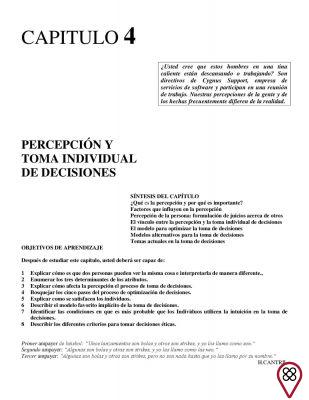It's not easy to raise a child, and that's no secret to anyone. Even those who do not have children know the difficulty of fatherhood and motherhood. There are so many issues that are so difficult for parents to solve, who try at all costs to give the best for their children. However, there is much to be done to improve child development and that is within the reach of parents.
Do you smoke and tell your children not to smoke? Do you swear and tell your kids not to? Are you stressed and require your kids to always be in a good mood? Demand respect but not respect? So, know that there is a lot to change.
Sofo Archon has written an article on her website, The Unbounded Spirit, about the secret to raising an emotionally healthy child. It is worth checking. As the original article is in English, Eu Sem Fronteiras has translated the full text for you, check it out below.
Parents, Here's How to Raise an Emotionally Healthy Child
By Sofo Archon
Recently, my beloved partner and I were walking through one of the most beautiful parks in Athens, capital of Greece, when we saw a beautiful incident that has been on my mind and that I will probably never forget.
A father was playing football with his son, a child no more than three years old, and they both looked happy and enjoying themselves, squeezing each other every moment between the game.
Suddenly, while the child was trying to kick the ball towards his father, the boy abruptly fell to the ground. The boy began to cry, apparently expressing pain and feeling helpless.
The father quickly went to his son, took the child in his arms and said to him, in a loving voice: "don't worry, my love, you are strong". In a few seconds, the child stopped crying and, together with his father, they resumed kicking the ball with joy, back and forth.
Shortly thereafter, we returned home to relax after our long and exhausting walk. As soon as we walked into our apartment, we heard our neighbors in the hallway of the building yelling at their son, calling him stupid, something they tend to do when they're not in a good mood - which is, in fact, almost always. .
There were a few times when I heard them calling their son gay, retarded and other similar names of nature. As you can probably understand, this child and the one mentioned at the beginning of the text receive a completely different upbringing.
One is raised in an emotionally healthy environment, involved in love, care and encouragement; while the other in an emotionally toxic environment, filled with hate, disrespect and criticism.
Psychology discovered a long time ago that the words parents use while talking to their children can tremendously influence children's psychological development, as well as their behavior and habits, that is, their future.
“But why is this true?”, you might ask yourself. Well, first of all, children want to be loved and wanted by their parents – little ones want that more than anything else. So the way parents talk to their kids means everything to them.
Therefore, the words spoken by the parents deeply affect their psychological. That's why, when parents verbally express that they don't like their children as they really are and don't accept them, for example, children feel ashamed of themselves and hate themselves.
When parents, however, talk affectionately and show respect for their children, the little ones feel good about themselves, in addition to being proud of who they really are. In addition, parents are seen as role models by their children. For them, everything their parents say is right.
Children really believe what their parents say and think; they accept it as absolute truth, without question, and it is precisely this truth that they buy from their parents that shapes their view of the world, including their view of themselves.
Therefore, if, for example, a parent calls his child an idiot, there is a huge chance that the child will actually believe he is an idiot and, later on, will start acting like one. If a parent calls their child gay in a derogatory way, it is very likely that the child will grow up to be a homophobic person.
However, if the father tells his son that he is strong, as in the case of the father who was playing football with his son, there is a high chance that the boy will believe he is strong and start behaving like a strong person.
But it's not just the words of parents that shape children's minds. Even more important than the words, the general behavior and attitudes of the parents are present. More than anything else, children learn by example.

Even, for example, if a child's parents are worried, fearful and stressed, the child can become an insecure, anxious and neurotic adult. Or, a contrary example: if a child's parents are confident, endure hard times and are positive, their child is likely to grow up and develop an optimistic, courageous personality unafraid to face the challenges that life throws at him. way.
This means that, in most cases, the best way for parents to teach their children anything is to incorporate what they are trying to teach. Parents often give children advice that they don't apply in their own lives. "Don't smoke, it's bad for your health", we often hear this phrase from parents, while holding a lit cigarette in their hands. Or, perhaps, “stop fighting with your siblings” while they use physical punishment as punishment for their children's misbehavior. Do you want to teach that you shouldn't hit, hitting?
The result? Children receive conflicting messages regarding the actions and words spoken by their parents – and actions always speak louder than words. And then the children come to their own conclusions from what has already been shown to them.
A child is like a sponge, which unconsciously absorbs everything around it, in the environments in which it lives. And since parents are part of their children's main environment, their own psychological condition is of utmost importance for the development of the children's psychological condition.
If parents are not emotionally healthy, they fail in their mission to raise emotionally healthy children – the emotional problems they suffer will inevitably be transferred to their children.
Therefore, only when parents know how to deal with their own emotional difficulties and overcome their own psychological problems will they be able to create a positive environment for child development – that is, an environment that makes children feel affection, security, love and support. by the form they are in their essence; in that way, they can grow into the best and totally true version of themselves.
Written by Giovanna Frugis from the Eu Sem Fronteiras team

























